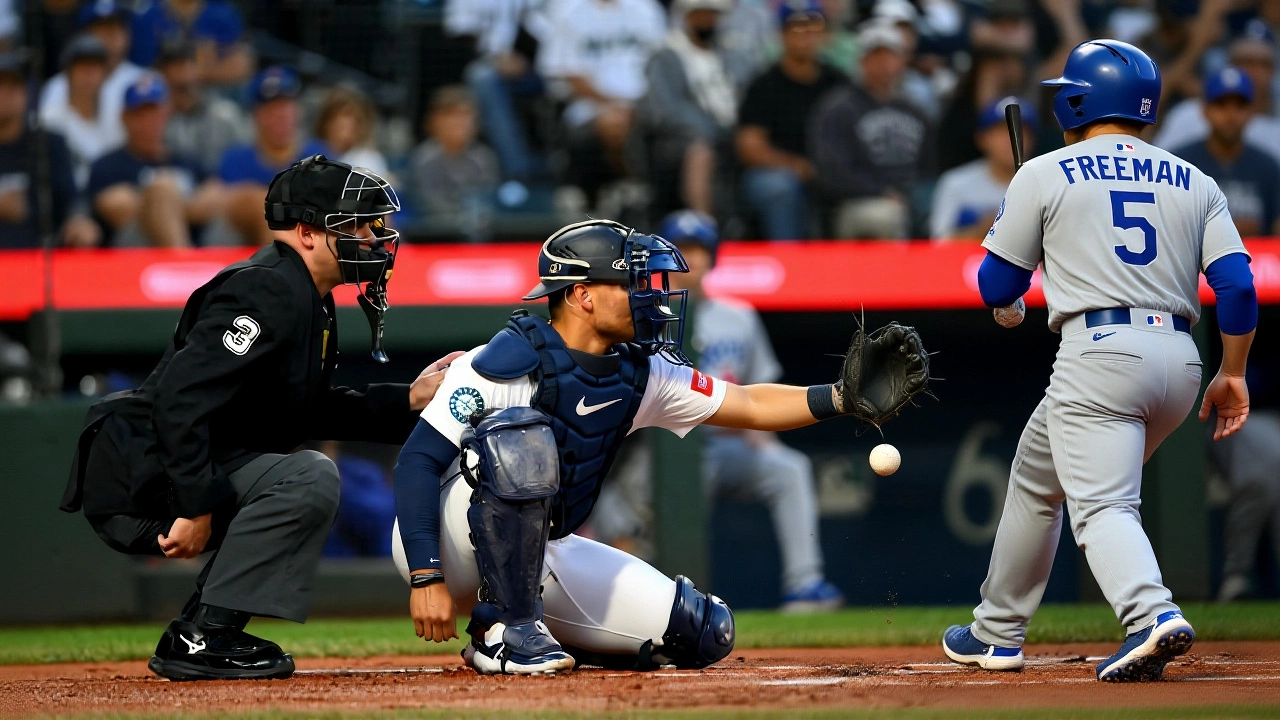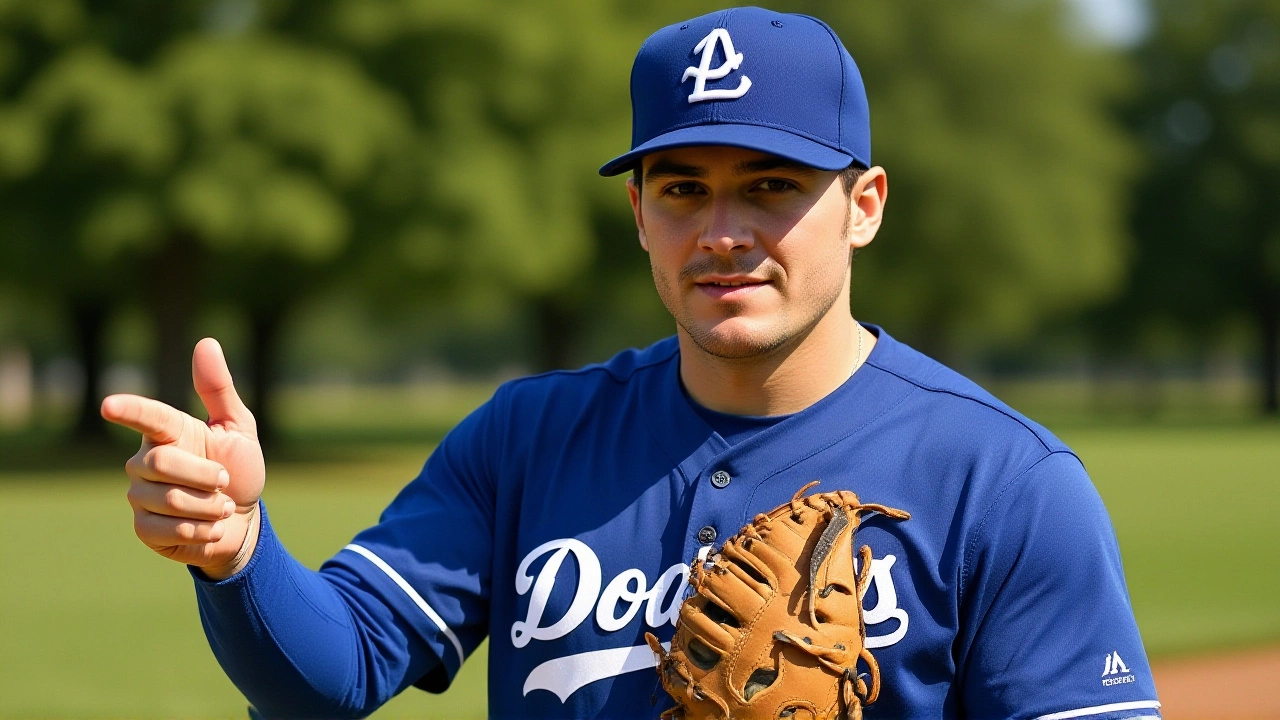When Kiké Hernandez stepped onto the tarmac at Los Angeles International Airport on Thursday, April 17, 2025, he wasn’t just heading to Philadelphia for a crucial road series against the Philadelphia Phillies. He was carrying a hat — and a message — that the Los Angeles Dodgers didn’t want the world to see. Hours later, after the team’s social media team digitally erased the graphic design from an Instagram post, Hernandez didn’t just quietly move on. He called it out. "I feel disrespected that my hat got photoshopped," he wrote in a comment that instantly went viral. The Dodgers responded with a zipped-mouth emoji. And just like that, a simple travel photo turned into a full-blown cultural clash inside one of baseball’s most powerful franchises.
The Hat That Started It All
The hat in question wasn’t just odd — it was deliberately crude. Multiple outlets, including Larry Brown Sports and OutKick, confirmed it featured a cartoon skeleton with its skull buried deep into a curvy backside, accompanied by the phrase "b-tthole whisperer" — or, as some sources reported, "ass charmer." Hernandez, known for his offbeat fashion choices and unapologetic personality, had worn it casually during the team’s pre-flight routine. To him, it was just another piece of streetwear. To others — including, reportedly, a teammate’s young child — it was deeply inappropriate. According to The Athletic’s Fabian Ardaya, an anonymous Dodgers player raised concerns with manager Dave Roberts after his child asked what the image meant. While speculation pointed to first baseman Freddie Freeman as the complainant, no official confirmation came from the organization. What’s clear is that the complaint triggered a behind-the-scenes edit: the team’s social media team blurred out the hat in the Instagram post meant to hype the road trip. No warning. No discussion. Just Photoshop.A Public Rebuke in the Age of Social Media
Here’s the thing: Hernandez didn’t have to respond. He could’ve shrugged it off. He could’ve joked about it later in the locker room. But he didn’t. He chose to publicly call out the organization — on their own platform. And that’s what made this more than just a fashion dispute. It became a question of authority, autonomy, and respect. "They didn’t ask me. They didn’t talk to me," Hernandez told reporters before Friday’s game. "I’m not some brand asset they can airbrush whenever something makes them uncomfortable. I’m a person. I’m a player. I’ve won two rings. I’ve earned the right to wear what I want — off the field." The Dodgers, for their part, stayed silent. No press release. No statement. Just quietly updated their feed. The silence spoke volumes. To some, it was damage control. To others, it was cowardice.What Happened Next — And Why It Matters
The irony? The very next day, in Citizens Bank Park, Hernandez crushed a two-run homer off Aaron Nola in the second game of the series — his third of the season — helping the Dodgers win 3-1 after dropping their season opener. Fans erupted. The camera caught him smiling, hat still on his head, this time unedited. "That home run? That was for me," he told reporters afterward, shrugging. "Not for them." The moment was symbolic. Hernandez wasn’t just hitting a ball. He was asserting his identity. And in a league where players are increasingly expected to be polished, corporate ambassadors, his defiance felt like a quiet rebellion.
Who’s Really in the Wrong?
OutKick didn’t mince words: "There are millions of kids who are Dodgers fans that follow this account on social media. Do you really think they need to see a picture of that on your ball cap? Seems to me like that’s not a great example to set." Meanwhile, Marca framed it as "Political Correctness vs. Freedom of Speech," noting that the real issue wasn’t the hat — it was the team’s unilateral decision to erase it without consent. The team’s legal team likely knew the hat violated no league rule. But they also knew the optics were toxic. What’s missing from the debate? The fact that Hernandez isn’t a kid. He’s 32. A two-time World Series champion. He’s not a rookie trying to make a name. He’s a veteran who’s earned the right to be himself — even if that self is a little weird. And yet… the team has a responsibility. To its fans. To its sponsors. To the families who bring their kids to games. The Dodgers aren’t just a baseball team. They’re a cultural institution. One that’s spent decades building a brand of professionalism.What’s Next?
As of Sunday, April 20, 2025, the Dodgers and Hernandez have not spoken publicly since the incident. No disciplinary action has been taken. No apology issued. Major League Baseball hasn’t weighed in. The series is over. The team flies back to Los Angeles — but the tension lingers. The next time Hernandez wears a bold hat? Will it be censored again? Will he keep pushing back? Or will the organization quietly establish a new policy — one that says: "Your personal expression ends where our brand begins?" For now, the answer remains unclear. But one thing’s certain: in the age of Instagram and instant outrage, even a hat can become a lightning rod.Frequently Asked Questions
Why did the Dodgers censor Kiké Hernandez’s hat?
The Dodgers reportedly censored the hat after an anonymous player complained that his child questioned the explicit imagery — a cartoon skeleton with a skull buried in a backside and the phrase "b-tthole whisperer." The team, fearing negative publicity and damage to its family-friendly brand, edited the image without consulting Hernandez, triggering his public backlash.
Is it against MLB rules to wear vulgar apparel off-field?
No, Major League Baseball has no official policy banning offensive clothing during non-game hours. Players are free to wear whatever they want off the field unless it violates team-specific conduct codes. The Dodgers’ action was an internal brand decision, not a league-mandated enforcement.
Did Kiké Hernandez face any consequences for speaking out?
As of April 20, 2025, Hernandez has faced no disciplinary action from the Dodgers or MLB. His public comment, while unusual, was not insubordinate under team rules. In fact, his performance — including a key two-run homer during the controversy — may have shielded him from internal repercussions.
Could this lead to changes in how MLB teams handle player apparel?
Possibly. The incident has ignited debate among team executives about whether to implement clearer off-field apparel guidelines, especially for social media content. Some clubs may adopt written policies to avoid similar PR crises, but others may avoid formal rules to preserve player autonomy — a delicate balance in today’s athlete-driven media landscape.
Why did Hernandez choose to respond publicly instead of privately?
Hernandez has a history of using social media to express himself, and he likely felt the team’s silent edit was a public slight — not just a private misstep. By responding publicly, he turned a minor incident into a statement about respect and autonomy, leveraging his platform to challenge organizational authority without backing down.
How has the public reacted to the controversy?
Reactions have been sharply divided. Many fans defend Hernandez’s right to personal expression, praising his authenticity. Others, especially parents, support the Dodgers’ decision to shield young followers from explicit imagery. The debate has spilled into mainstream media, with outlets like OutKick and Marca framing it as a clash between corporate responsibility and individual freedom.

